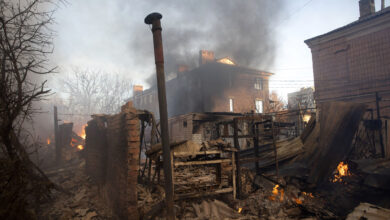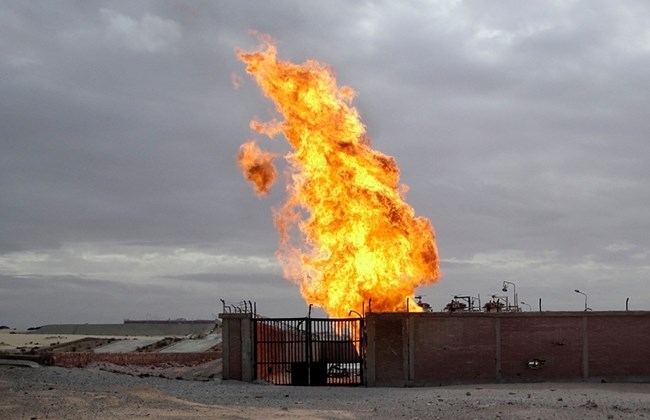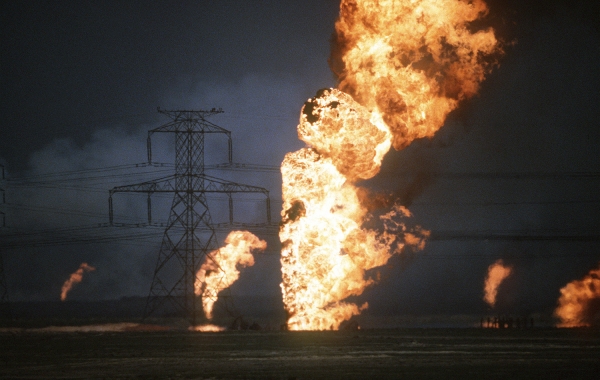Unknown saboteurs bombed an Egyptian gas pipeline in Sinai Wednesday, sending flames shooting into the sky and forcing authorities to cut supplies to Israel and Jordan, an official told AFP.
The attack took place at dawn near the village of Sabil in the Arish region, the security official said, adding that the bomb was activated remotely.
North Sinai Governor Abdel Wahhab Mabrouk confirmed the gas stoppage in statements to state television, describing the explosion as an act of sabotage that had not resulted in any casualties.
Egypt's official news agency MENA reported flames as high as 20 meters (65 feet) shooting from the ruptured pipeline.
MENA quoted locals as saying that they heard a "huge" explosion followed by a massive fireball.
Workers have mostly extinguished the flames after shutting off the flow of gas to the part of the terminal that exploded, according to MENA.
Mabrouk said that part of the pipeline feeds gas to Israel and Jordan, as well as some areas in the Egyptian city of Port Said.
A spokesman for the Israeli Ministry of National Infrastructures when asked by AFP refused to confirm whether gas supply to Israel had stopped after the blast.
The pipeline was previously sabotaged on 5 February during a popular uprising that forced former Egyptian president Hosni Mubarak from power on 11 February.
Supplies of gas to Israel and Jordan from that disruption resumed eventually on 16 March.
At the time, Israeli Infrastructures Minister Uzi Landau said that "gas is the most important economic component of the peace treaty between the two countries" signed in 1979.
Egypt supplies about 40 percent of Israel's natural gas which is used to produce electricity.
To compensate for the interruption of supplies of Egyptian gas, the Israeli authorities had previously authorized the use of thermal pollutants, including oil, to avoid blackouts.
In April, after the ouster of Mubarak, the Egyptian military council which is running the country, has ordered a review of all gas supply agreements, including those with Israel which were widely criticized by the opposition.
Several former members of Mubarak's ousted regime, including two ministers, are to be tried for allegedly selling gas at prices below market to Israel.
Egypt was the first Arab country to have signed a peace treaty with Israel, a move hailed by the international community, but unpopular among the Egyptian people who are very critical of the Israeli policy towards the Palestinians.
Jordan imports around 240 million cubic feet of Egyptian gas a day, or 80 percent of its electricity needs.
The previous disruption cost the Jordan economy some $4.2 million a day, Energy Minister Khalid Tuqan said at the time.
An armed Bedouin group in June threatened to attack the pipeline, security officials said, leading Egyptian authorities to beef up security around the pipeline and terminal.
Police relations with the region's former nomads are often tense, with the Bedouin complaining of routine harassment and discrimination.
Activists accuse the police of exploiting concerns about the pipeline to crack down on the community.
Human rights groups have criticized Egyptian policy toward the Bedouin, who faced harsh police treatment after a series of bombings in Sinai resorts between 2004 and 2006 which killed dozens of Egyptians and foreign tourists.



